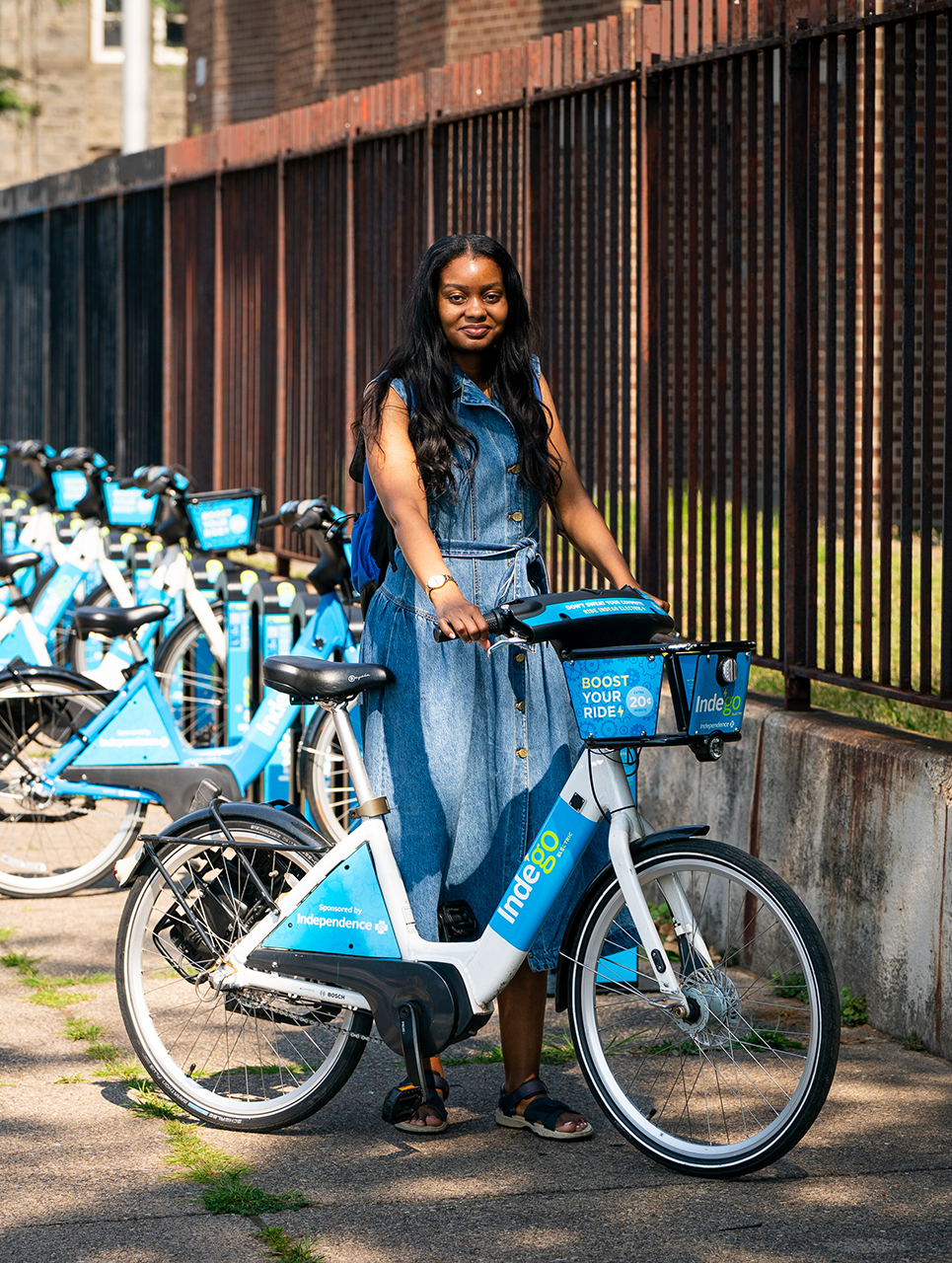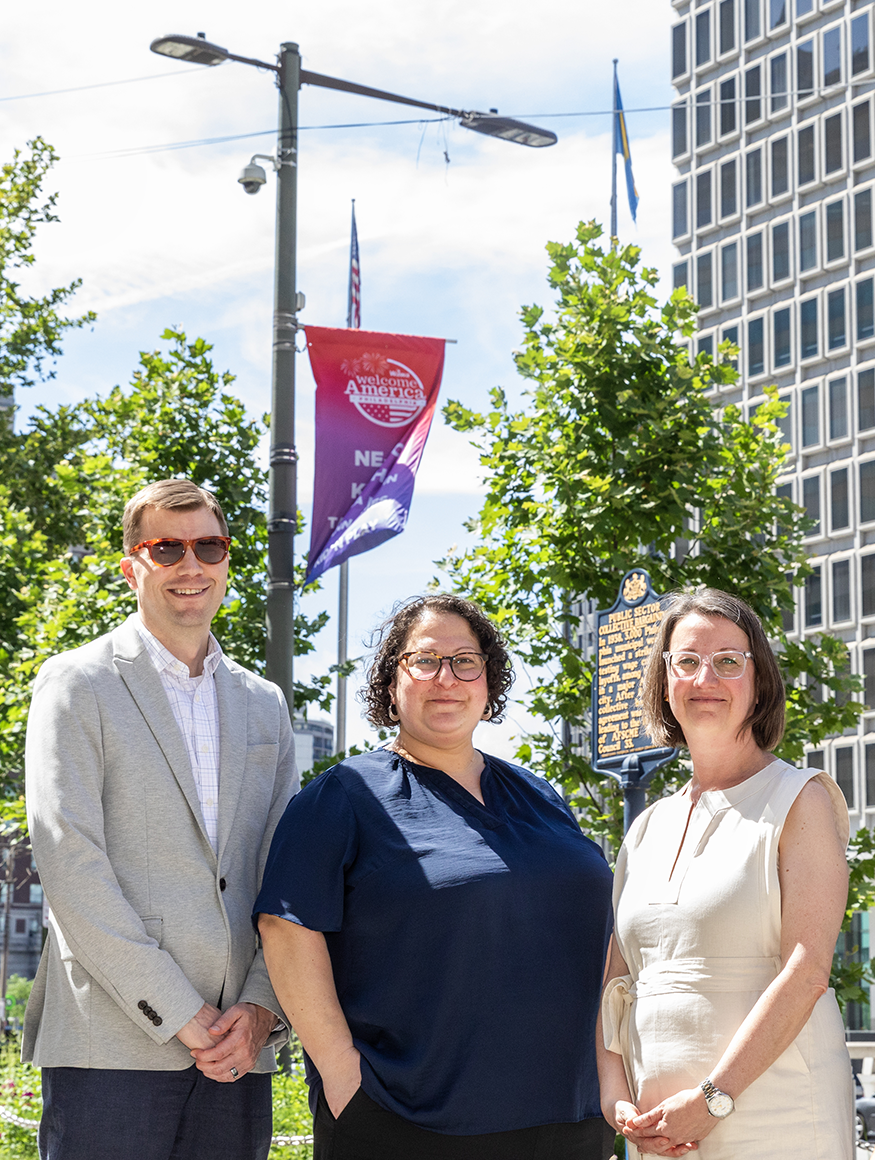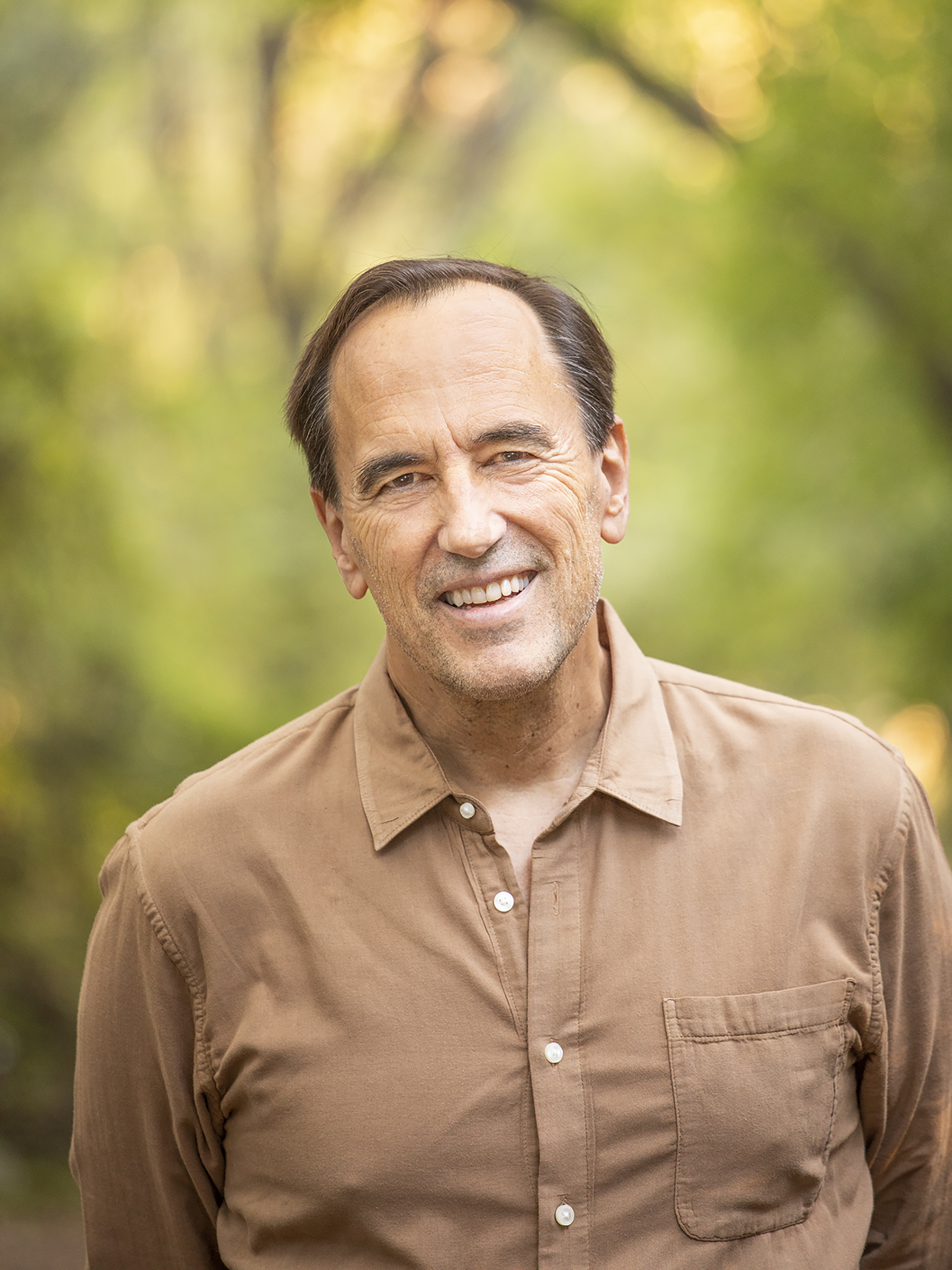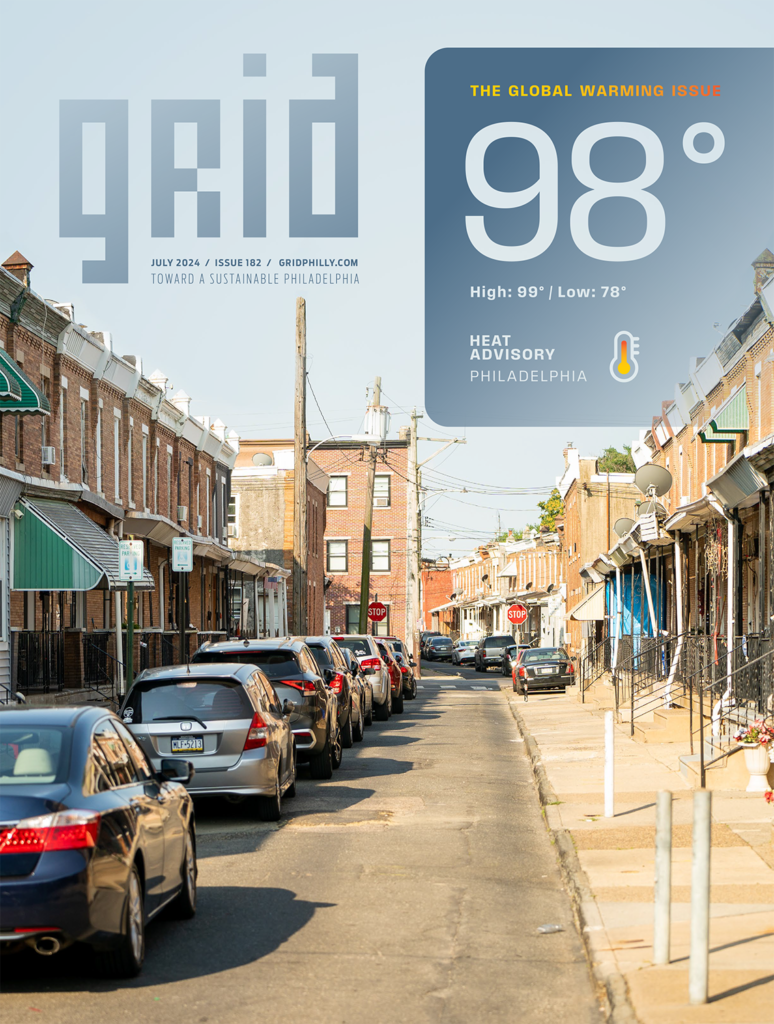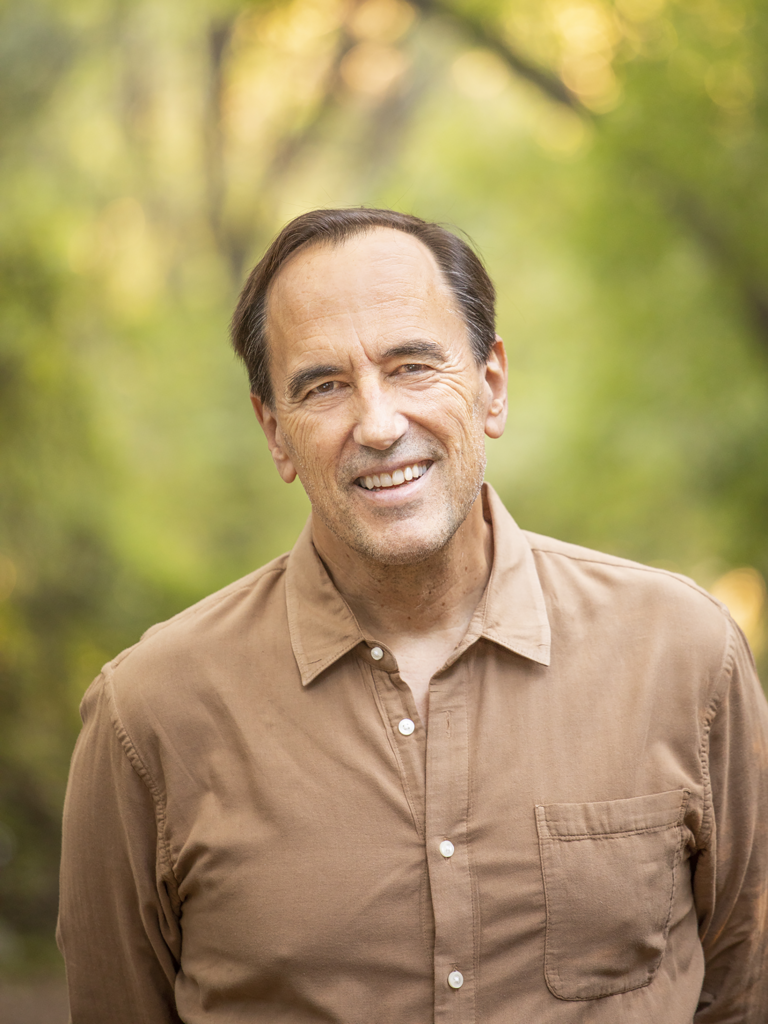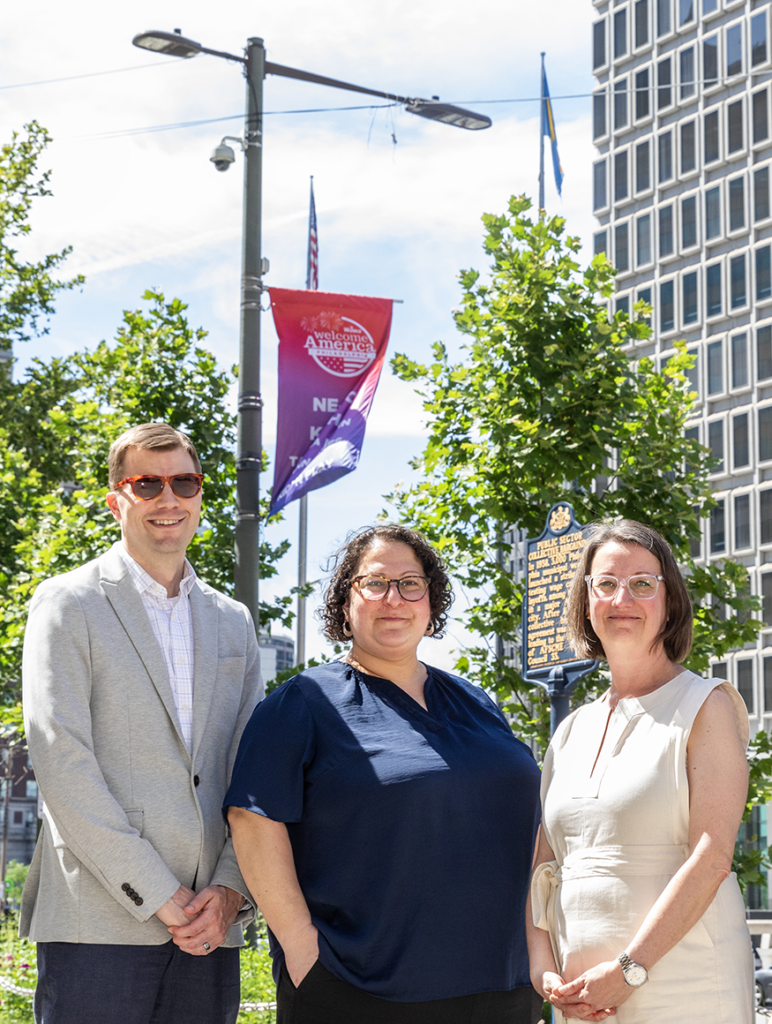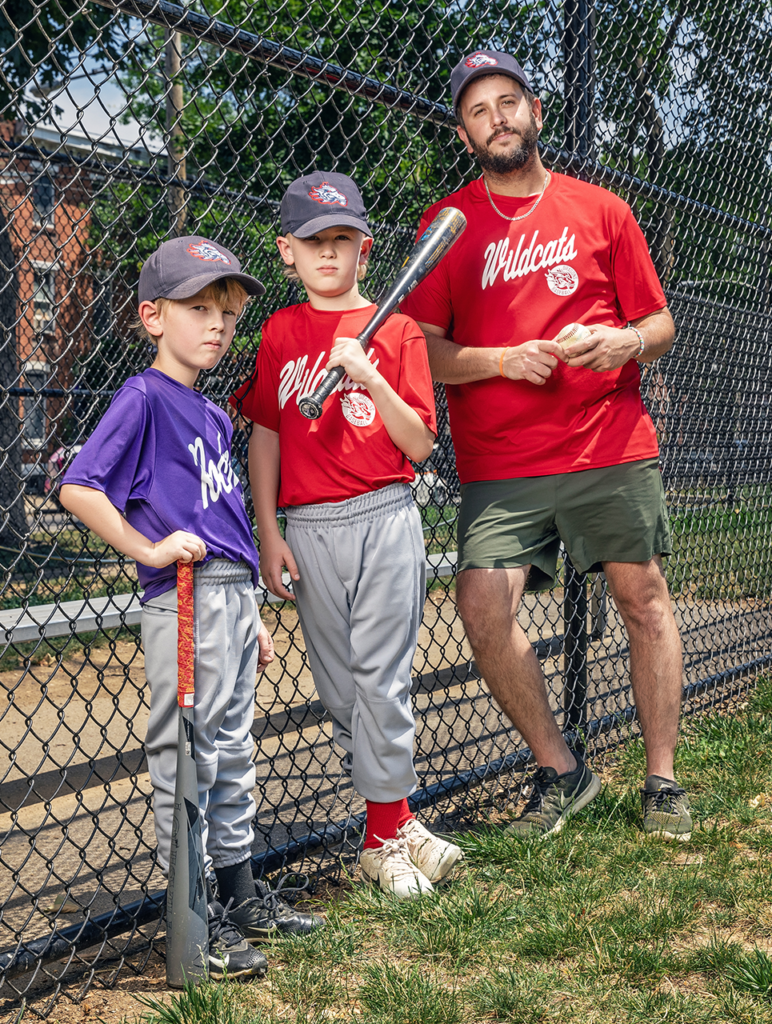It was a warm, late spring morning and traffic was light in West Philadelphia. Not the vehicular kind: the lurching, beeping and swerving on thoroughfares such as Market and Chestnut were as hectic as ever.
But things were slow around several Indego Bike Share stations that now pepper the corridor from 50th to 60th streets. For the better part of an hour, a station at 56th and Chestnut streets went unutilized until Gregory Isaac approached.
The middle-aged professional explained that he used to live outside of the city and would drive in, park in a free area and use Indego — Philadelphia’s joint public-private bike share service — to complete the last leg of his journey, rather than pay the high parking fees downtown. Since moving to West Philadelphia six months ago, he simply walks to the Indego station and bikes to work.
But it isn’t all smooth riding.
“I could use a couple more stations,” Isaac said, especially on the Cobbs Creek Parkway, where he likes to ride. “But the biggest thing is, I wish there were fewer e-bikes and more human-powered bikes,” he added, as he checked out the only traditional bike in a rack with nine electrics, which cost an extra 20 cents a minute to ride.
Isaac’s experiences highlight some of the challenges around Indego’s expansion into neighborhoods outside the city’s core in recent years. When the service launched in 2015, the demographics of the neighborhoods where it placed its stations looked nothing like the city it was purportedly serving.
In the U.S. Census tracts where its stations were originally located, 52% of residents were white while 23% were Black, according to Indego’s own data. That proportion was dramatically different from the city’s overall population, where four in ten people are Black.
But, representatives of Indego say the service is endeavoring to improve the equity of the city’s only bike share program, which is owned by the City of Philadelphia and operated by vendor Bicycle Transit Systems. Those efforts come in various forms, from the placement of stations in more diverse communities to outreach programs meant to win the trust of residents, says Waffiyyah Murray, Indego program manager with the City.
“When we were first rolling out … there were communities that were like, ‘No, we don’t want that here,’” Murray says. “But then as they started to see how we built that trust in other communities … now we get folks asking us for stations. We’ve seen firsthand how the narrative has moved.”
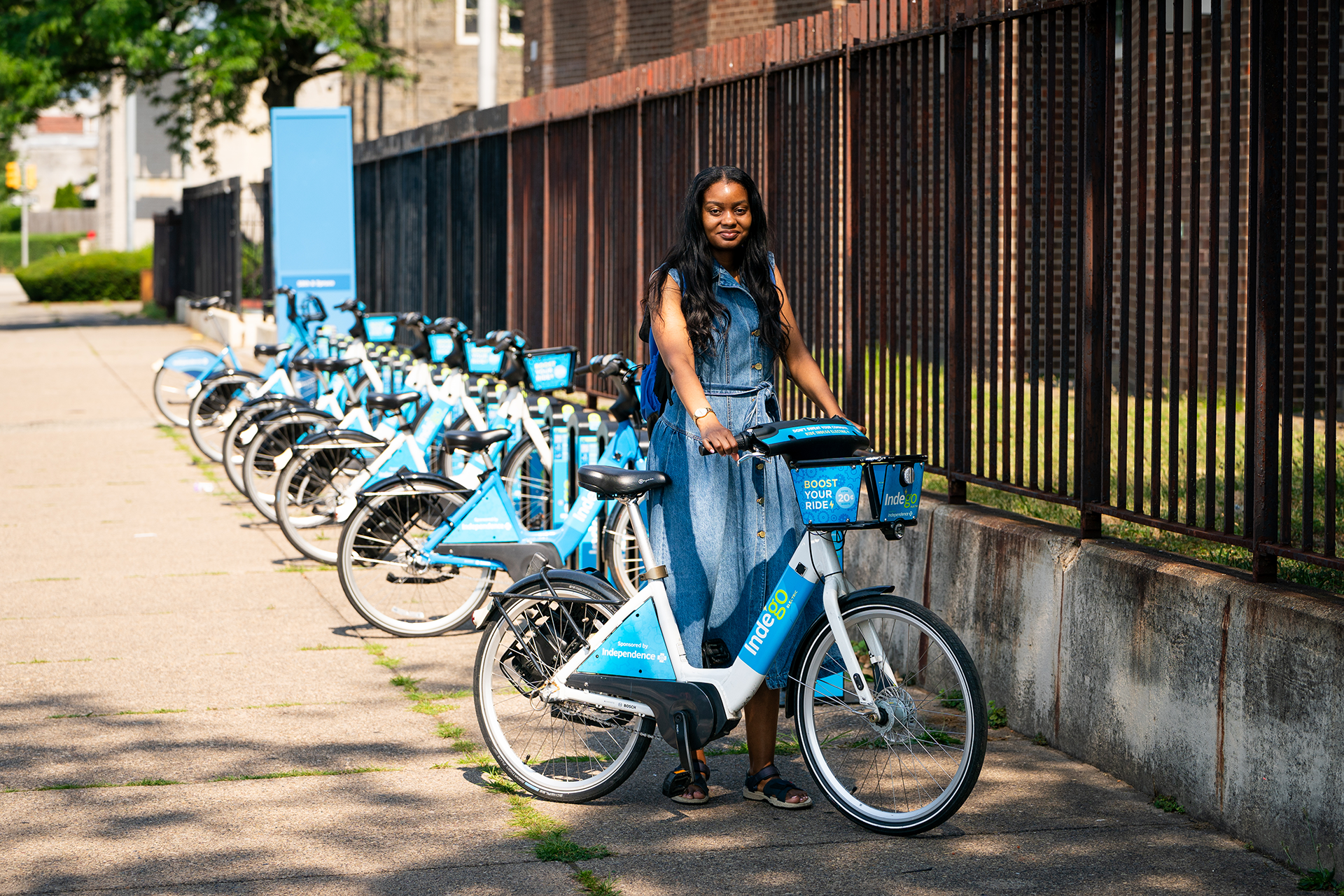
According to Indego’s data, the demographic diversity of the neighborhoods where it is placing bike stations is indeed improving. Year-over-year figures published in an five-year equity plan Indego released last year show that, as of 2022, the Black populations of Census tracts where stations were placed had reached about 33%, a ten-point improvement from the service’s launch.
Still, such metrics can hide the inequities of distribution. A map of Indego’s current 250 stations shows an obvious clustering in whiter parts of Philadelphia like Center City and Old City, leaving far sparser service in neighborhoods like West Philadelphia. But, general manager for Indego at Bicycle Transit Systems Nate Bowman-Johnston says the service’s strategy all along has been to first secure its financial wellbeing in more affluent parts of the city, then add stations to lower income neighborhoods, which he says Indego remains committed to as it plans the installation of 125 more stations in the years ahead.
And they’ve already started laying the groundwork by making the service more affordable for low-income riders.
Bowman-Johnston points to 2018, when Indego began offering reduced rates to Pennsylvania ACCESS card holders, which are issued to residents who receive state cash assistance, supplemental nutrition assistance (SNAP) and medical benefits. For Indego’s rates as of June 2024, the discount cuts the cost of a standard 30-day Indego pass from $20 to $5 for ACCESS card holders, and the cost of its most premium annual e-bike offering from $19 to $8 a month.
Bowman-Johnston speaks plainly about the service’s financial realities. The vendor, which is responsible for all of the day-to-day operations and decisions on pricing and station placement, receives no financial subsidy from the City and thus incurs financial risk if the system were to become insolvent, Bowman-Johnston says.
But, his company remains committed to slowly increasing the equity of its offerings, even if that means smaller margins — at least at first, he added.
“One of the goals is that, as we expand Indego, the demographics of our service area more closely reflect the actual demographics of the city,” Bowman-Johnston says.
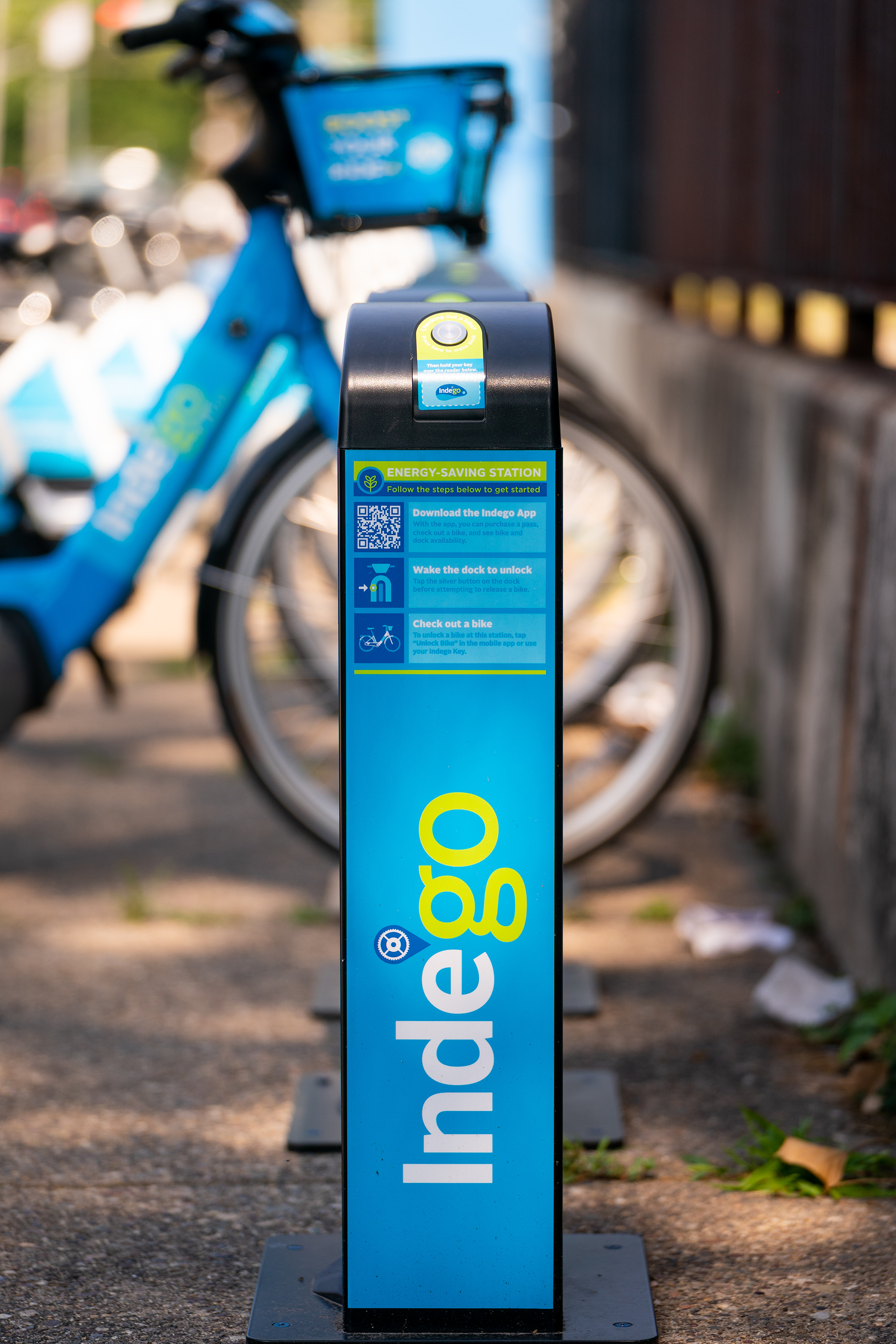
Expert recommended
Indego’s commitment to equity isn’t just lip service, say academic experts who have studied bike share programs across the country.
Josh Davidson, an assistant professor at Oberlin College who pursued his master’s and doctoral degrees at the University of Pennsylvania and wrote his doctoral thesis on COVID-19’s impact on Indego, “commends” the service for its early and consistent focus on equity. He acknowledges that historically, stations have been concentrated in Center City and University City. The latter, he says, may have even helped Indego goose its equity numbers, as stations clustered around Penn and Drexel were technically located in low-income Census tracts.
However, Davidson says he was impressed as Indego first rolled out a station at 45th Street, and then 50th Street (Indego’s deepest West Philly station is now located at 58th and Spruce streets), and deeper into neighborhoods like Mantua.
“To give credit where credit is due, over the years they have continually expanded service farther and farther into low-income areas,” Davidson said.
Nathan McNeil, a researcher at the Nohad A. Toulan School of Urban Studies and Planning at Portland State University, says the makeup of the entities that back Indego add to its legitimacy. The program has its roots in City Council, which successfully prompted Michael Nutter’s administration to complete a feasibility study for a bike share program in 2010, setting the table for the launch of Indego five years later.
Also influential is the Better Bike Share Partnership, a collaboration between the City, the National Association of City Transportation Officials (NACTO) and the advocacy group PeopleForBikes, whose partnership is funded by the New York City-based JPB Foundation. Involved with Indego from the outset, Better Bike Share’s website says it was able to leverage philanthropic funding to assist with Indego’s equity efforts, including the creation of the discount fare program and early installation of 20 stations in underserved neighborhoods.
“When Philadelphia launched Indego, they sort of made equity a central component of the system,” McNeil says, calling that an improvement on earlier models in other cities. “This was a pretty new idea … that we’re going to have this foundation of outreach and programming to make sure it works.”
The path to equity
Bike sharing advocates say the challenge of ensuring equity is not to be taken lightly. Or Caspi, a former bike share researcher at Rutgers University, studied Indego data in 2017 and 2018 and concluded that stations located in low-income areas receive less usage, even after controlling for variables like the presence of nearby public transit and bike lanes.
Murray says the City has experienced this firsthand.
“That theory of, you build it and they’ll come, does not work. You can’t just put a station out in a neighborhood and expect folks to use it,” Murray says. “There’s a lot of communities that have a lot of distrust. There’s a lot of nervousness around new things. Gentrification and displacement are real.”
Murray ticks off a list of programs she says Indego, the City and other partners like the Bicycle Coalition of Greater Philadelphia are offering to try to ensure all Philadelphians utilize the service, and thus ensure its long-term viability. Many fall under the banner of outreach, including introductory group rides for trepid first-timers, bicycle education classes and work commuting programs.
West Philly resident Morgan Mahdavi, who helps lead programs at Better Bike Share, says the sessions are well attended. “They’re so great. The demographics are such a mixture … folks of color, immigrant folks, low-income folks,” Mahdavi says. “We block traffic, and block intersections, we lead. And it’s so fun to see people who are really nervous and by the end they feel very excited and empowered.”
Mahdavi themself uses Indego for all manner of local errands and trips, and says they find it to be the most convenient form of transportation. But, they say, they rarely encounter other users at area stations.
Until Indego is successful in getting significantly more Philadelphians riding — and paying — for bikes, Bowman-Johnston says the vendor will continue to rely heavily on advertising and corporate sponsorships (including title sponsor Independence Blue Cross) to help keep the entire system afloat, as service fees only account for about 50% of revenue.
Eventually, experts like McNeil and Davidson would like to see bike share systems folded more directly into public transportation networks like SEPTA, removing some of the financial precarity and elevating its importance as a mode of transportation.
“I think we need to think outside of the scrounging-for-grant-funding-streams [approach],” McNeil says. “What are the sustainable streams that fund the operating costs? Because that’s where it can become sustainable.”


